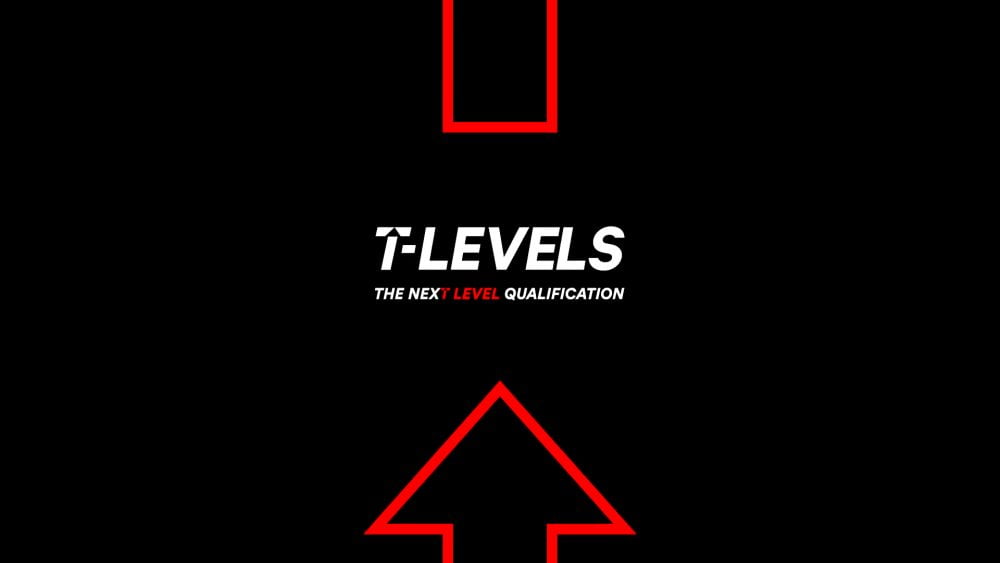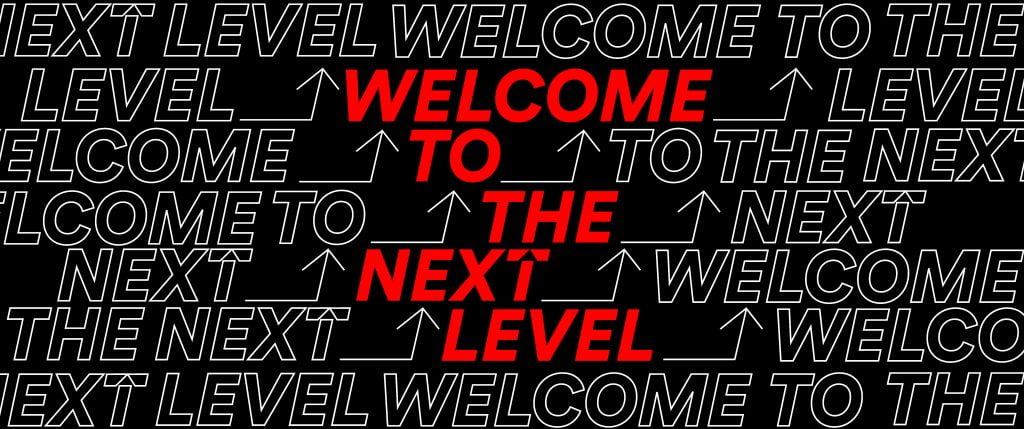British Curriculum Students Gain New T Level Choice in UK 2020 – UAE to Follow
“The T Level qualification is an exciting development in the UK curriculum.
There is already a rich diversity of options available to parents across Dubai – and T Levels will undoubtedly add to vocational options for our students.
It will be interesting to see how T Levels grow and are received by employers and higher education institutions.
The new T Level qualification certainly answers the question regarding a powerhouse qualification for less academic routes for our students which has been asked for so long.”
Simon O’ Connor. Principal. Jumeirah College. December 2019
“T Levels will enhance the educational experience for many students allowing them the ability to study according to their academic profile and their desired pathway.
Every single BTEC student at the British school of Al Khubairat has graduated to attend their university of choice – technical qualification are proven, important and valuable.
The new British T Level qualification promises a new, alternative technical qualification for students in the UAE, one that is closely aligned to the needs of business and industry.”
Teresa Woulfe. Head of Secondary. The British School of Al Khubairat.
“Assessment is the key area for all schools at this time, regardless of curriculum and provision.
What we are seeing is the start of a reset, that is needed and welcomed, that is designed on measuring the diverse skills students have at the appropriate phase in their education.
T levels, A level, BTEC and IB all offer different forms of assessment but crucially enable students a pathway onto the next phase of education that is suitable for each individual student.
I’m sure that at DESC we will consider the T Level as a supplement to our A level and BTEC provision.
The increase in pathways for British Curriculum schools brings into question the need for GCSE qualifications and, therefore, the appropriateness and need for testing at age 16 then again at 18.
I would hope to see even more radical changes and options in this entire area of education over the next few years.
Christopher Vizzard , Headteacher, Dubai English Speak College. December 2019.
“The UAE is a hub of innovation and a regional leader in technology start-ups. Initiatives from H.H. Sheikh Mohammed such as ‘One Million Arab Coders’ and the Taaleem family of schools highlight this powerfully.
In relation to the new T Level qualification, Dubai British School is excited about the opportunity to partner with local industry, the KHDA and ADEK to introduce this important new technical qualification.
Dubai British School Jumeirah Park has already undertaken a case study, feasibility review to pilot the new T Level award in the UAE”.
Brendon Fulton. Executive Principal. Dubai British Schools. December 2019.
Background
It is now confirmed (December 2019) that T levels will launch in September 2020 in the UK – establishing a new world class technical qualification for students to match the gold standard A Level. The aim is to revolutionise the opportunities for students who want a direct, relevant and fast-rack route into “real world” industry rather than facing three years in academic university study on leaving school. It is expected that the qualification will launch in the UAE by the time many of today’s children in UAE schools enter Sixth Form to embark on their Post-16 study.
One T level is equivalent to 3 traditional A Levels – but rather than based around the theoretical, book-based knowledge characteristic of A levels, they offer students, instead, the practical, current, hands-on specialist sector knowledge employers need so that they can leave school with the skills to enter industry and employment from day One.
20% of T Level study will be based directly in industry placements rather than school with a minimum 45 days/315 hours working directly in their chosen sector of study whilst at school.
Globally, students can also use a T Level to access top tier universities (just as with A Levels) or apprenticeships with the likes of global giants like Unilever, GSK, Accenture, astraZeneca, Warner Bros, Barclays, Deloitte, Bloomberg, British Airways, HSBC, DHL, Jaguar Landrover, Virgin Atlantic and Nestle. In the UAE, Emirates Airline is pioneering apprenticeships, initially for nationals, in Revenue optimisation, Flight Operations, Finance, Human Resources, Procurement and Logistics, Group Security, Airport Services, IT and Engineering. With the establishment of T levels it is expected that major employers across the GCC will follow suit.
https://youtu.be/J4hdOsUbYF0
To date, the first school to announce its firm support for the introduction of T Levels is the Jebel Ali School, reviewed here. Schools like ADEK Outstanding British School of Al Khubairat, the only school in the UAE to provide advanced BTEC study in Engineering, is already well-placed to develop T level provision with its award-winning investment in technical education to date. Our review of the British School of Al Khubairat can be found here.
We hope that the launch of T Levels in the UAE will lead to the opening of specialist Sixth Form Colleges and expansion of existing Sixth Form Centres within existing schools.
How can the International Baccalaureate compete with T levels?
Generally, it cannot. The International Baccalaureate offers a technical stream alternative to its academic Diploma with the IB Career-related Programme. This is a fixed programme of academic study drawn from the Diploma but with the addition of a technical qualification, usually a BTEC in the UAE and some changes to language requirements that are better suited to non-linguists. Whilst in our view the Career-related Programme is an outstanding one on its own terms, the IB does not offer a dedicated programme of study equivalent to T Levels specifically structured around 27 core industries in combination with significant highly aligned industry placement – the key new element of T levels.
Some UAE schools have, however, responded to this weakness of the IB relative to T Levels by creditably strengthening industry links still further within IB study.
Ruth Burke, Director, Deira International School advised us:
“Ensuring there is a broad range of pathways, including technical options, for all students is imperative.for schools to be able to meet the needs of all learners.
At Deira International School we achieve this technical element through the International Baccalaureate Career-related Programme – and this technical element is embedded in the IBCP here through work placements and industry visits one day each week.
In addition, at DIS we have developed our ” Experiential Learning Program” as a co-curricular program for our Year 11 through to IB2 students for our Diploma students. This Experiential Learning Program offers our Diploma students too the opportunity to gain industry work experience outside the Diploma Programme, giving time for students to explore career pathways and focus their university choices. This experience is gained during summer and term vacations.
Uniquely at DIS, we gain access to industry for our students by leveraging our close links with the Al Futtaim Educational Foundation and by extension the Al -Futtaim Group. This gives our students access to experience in the automotive, financial services, real estate and retail sectors in specialist functions including marketing, HR and legal.”
Ruth Burke, Director, Deira International School
First T Levels to come on stream in 2020
https://youtu.be/XYQw5rQrwwA
In 2020, the first three T levels will launch in
- “Digital production, design and development”
- “Surveying and Planning”; and,
- “Education”
These aim to fire up skills in the Digital, Construction and Teaching/Child Care sectors.
From 2021 a further seven T levels will launch with more launching over the next three years until the full 25 T Level subjects are available to students:
- accountancy
- agriculture, land management and production
- animal care and management
- building services engineering
- catering
- craft and design
- cultural heritage and visitor attractions
- design and development
- design, surveying and planning
- digital business services
- digital production, design and development
- digital support and services
- education and childcare
- financial
- hair, beauty and aesthetics
- health
- healthcare science
- human resources
- legal
- maintenance, installation and repair
- management and administration
- manufacturing, processing and control
- media, broadcast and production
- onsite construction
- science
The obvious subject gap is Tourism – and it is likely that in this area BTEC, whether independently or within the International Baccalaureate Career-related Programme, will continue to play a vital role in the UAE.
T Level Grades and how they relate to A Levels
T levels are graded in two parts which are combined to make the overall grade:
These relate to A level grades as follows:
| UCAS tariff points | T Level overall grade | A level |
|---|---|---|
| 168 | Distinction* (A* on the core and distinction in the occupational specialism) | AAA* |
| 144 | Distinction | AAA |
| 120 | Merit | BBB |
| 96 | Pass (C or above on the core) | CCC |
| 72 | Pass (D or E on the core) | DDD |
Curriculum Guide: Digital – Production, Design and Development T-level
“The new T Level qualification opens up more career pathways for all students.
On offer is a relevant and accredited qualification which will significantly promote enhanced 21st century skills.
The T Level will give students the business-led experience and support needed to effectively enter the rapidly changing job market.
It’s tight focus on the current needs of business will enable students to meet the demands of rapid change including increasing use of Artificial Intelligence and automation.”
Stephen Duckitt. Principal. Safa Community School.
1. Core subjects
- The business environment
- How organisations respond to change
- Ethical and moral issues in IT
- Concepts and fundamentals of data
- Understanding algorithms and how they work
- Abstraction, Action, Decomposition and Patterns
- Digital environments
- Emerging technologies
- Planning and Security
- Fundamentals of testing
- Digital tools
2. Specialist technical subjects
- Programming skills
- Software development lifecycle (SDLC)
- Software and Business including Returns on Investment
- Context and market environments
- Analytical models
- Software architecture and design
- Interface design
- Understanding performance restraints
- Data types and structures
- Code structure and prose
- Test techniques and management
- Why we need change
- Manageable code
- Collaboration tools
- Understanding causes of software issues
- Software quality assurance
3. Employer-led industry dissertation/research/project
- Problem solving
- Team and capacity building
- Setting performance criteria
- Carrying out primary research
4. Career Path
- Digital development
- Security process
- Project planning and management
- Computing systems fundamentals
- Software development
Curriculum Guide: Construction T-level
1. Core subjects
- Materials and structural science
- Heat, Light and Acoustics
- Safe systems of work including risk assessment
- Approved codes of practice
- Principles of design
- The roles of different jobs
- Understanding a whole building
- The process of building a house
- The supply chain and building economy
- Sustainable building solutions
- Building heritage and conservation
- Types of measurement
- Building Technology
- Team dynamics and management
- Digital engineering
- How a business works
2. Specialist technical subjects
- Landscape survey
- Project management
- Geographical Information Systems (GIS)
- Digital technology and data management
- Global Navigation Satellite Systems (GNSS)
- How designs are prepared
- Technical drawing
- Relationship management
- Industry valuation standards
- Material properties
- Geology and substructures
Employer-led industry dissertation/research/project
- Problem solving
- Team and capacity building
- Setting performance criteria
- Carrying out primary research
Career Path
- Planning
- Construction Management
- Quantity Surveying
- Landscape Surveying
- Civil Engineering
- Construction Industry
Curriculum Guide: Childcare & Education T-level
Core subjects
- Child development
- Supporting Education
- Safeguarding, Health and Safety and Wellbeing
- Behaviour
- Observation and Assessment
- Equality and Diversity
- Special Educational Needs and Disability
- English as an Additional Language
- Parents, Families and Carers
- Working with Others
- Reflective Practice
- EYFS and National Curriculum
Specialist subjects
- Paediatric First Aid
- Food Handing
Career path
- BSc in Early Years
- BA in Early Childhood
- BA Education Studies
- BA Primary Initial Teacher Education (with QTS)
- Nursery Management
- Childcare practitioner
T Levels – The bottom Line? The SchoolsCompared View on a revolution in British – and global – education
Not before time, students in British schools will have access to a world class technical stream alternative to A Levels.
Those students who aspire to be the engineers of the future, innovators at the heart of the digital economy and tomorrow’s entrepreneurs in 25 different industries and sectors will finally be able to access the tools to fast track their careers on leaving school armed with qualifications with all the cache and prestige of A Levels.
In delivering this, British education will lead the world.
It was never anticipated, as is increasingly becoming the case today, that all students should follow an academic path to research based learning in university as a prerequisite to employment. Many of the world’s leaders in industry did not attend university – nor did they need to.
“The introduction of the T-Level qualification will provide new, future-ready schools, such as Arcadia, with a qualification pathway matched to our aim of developing technically skilled global citizens, ready to take on the world.
T-Level courses linked to technical subjects, delivered in partnership with industry and with aspirational outcomes have the potential to radically transform the educational landscape for all of our learners.
New schools such as The Arcadia School with an entrepreneurial mindset, state-of-the art secondary campus and a focus on technology are well placed to fully implement T-Levels as a key component in developing bespoke learning pathways for our students, providing them with the tools to succeed now and in the future.”
Graham Beale, Principal, Arcadia School
The UAE will inevitably play catch-up, but already educational leaders in the UAE are working through the possibilities that launching T Levels will bring for their students. They do not want to see their students forced to return the UK to access the next generation of technical qualifications. A school’s success today is judged by how many students they can send to university – quite regardless of whether this meets the needs of the child or wider society.
“The T level is an incredibly exciting new qualification which is so fit for purpose in a changing world of employment.
For new and growing schools like Hartland International which are yet to open their Sixth Forms, this could enable us to add a vital technical strand to our traditional curriculum offer for students.
If schools like ours do this, I do not think we will need to have independent Sixth Form Colleges in the UAE. We will, however, need a mindset and provision change in the existing framework to embrace this significant new qualification within our schools for our students and the new demands of the global economy before us.”
Fiona Cottam. Principal. Hartland International School.
The challenges of the global economy to come requires just this sort of revolution in education. Make no mistake, T Levels are exactly that – a revolution.
T Levels will remove the confusion that results from today’s plethora of alternative qualifications in the technical sector that confound students, universities and employers alike.
Will they eventually signal the end of the traditional A’ Level? Some argue that “academic A Levels (as too universities) are simply not fit for purpose in giving our students the employ-ability skills they, and business and industry, need.”
David Hicks, Principal, Dubai International Academy believes this unlikely, at least in the medium term:
“I suspect T-levels will, in due course, offer a viable alternative to complement A-levels. Will they see the end of A-levels? I very much doubt it.
With 750, 000 A-Level entries in England alone in 2018, the necessary change in infrastructure will need to be significant to cater for any significant proportion of this number transferring to T-Levels. As will the commitment by employers who will be partnering with schools to offer the new award.
A 315 hour (45 day) industrial placement is a significant aspect of the new award, and is to be commended. However, rolling this out in large numbers across a multitude of disciplines will present many challenges.
If Dubai’s employment legislation proves flexible enough to accommodate ‘students’ legitimately featuring in the work-place then the opportunities are significant. From the list of T Level qualifications to be offered, there is hardly one which doesn’t fit well with this city’s demands and growth strategy, from digital business services, health, education to finance, HR and manufacturing.
A benefit which A-Levels will still have in many schools, even smaller establishments, is a relatively wide variety of disciplines.
However, what we can expect is a growth in numbers at sixth form colleges which have traditionally offered vocational courses at post-16, frequently alongside A-Levels, as T-Levels gain recognition and traction. This of course will suit Dubai, with its ease of access and propensity towards well populated, large schools. It is feasible that many schools will be in a position to offer some of the courses, it might even lead to the development of a number of sixth form technical colleges, specifically set up to deliver a range of T-levels. Certainly, there is a market for an alternative to the traditional academic pathway, whether through T-Levels or similarly, the IB Career-related programme.
Ultimately, the proof will rest with employers, and possibly universities. If students who successfully complete T-Levels are routinely offered high quality employment offers or opportunities of further study, then market forces over time will drive the qualification’s success and reputation. However, I suspect that the ‘gold standard’ reputation of A-Levels, particularly in the most traditional of subjects, will take some time to be unseated.
David Hicks, Principal, Dubai International Academy Al Barsha
Anthony Cashin, Principal, Kent College told us:
“The introduction of T Levels is an exciting introduction into a trade, technical and hands-on approach to education for pupils who wish to increase their employ-ability skills thereby enabling them to be more industry-ready.
As schools in the UAE continue to be data-driven and strive to be places of high academic rigour, there is an expectation that we remain non-selective and provide differentiated pathways and modified curriculum for all pupils albeit through the current offerings of BTEC, A Levels, IBCP or the IB Diploma.
It is the understanding that every pupil in the UAE must be awarded the opportunity to join a school in the Foundation Stage and then graduate in Grade 12/Year 13 with the knowledge they are prepared for a career they wish to pursue – be it trade related, technical or academic.
T Levels therefore comes at an opportune time as an alternative pathway for technical education.
However, as schools need to continue to maintain their flexible offerings for pupils, I do not see A Levels disappearing at any time soon. This is because we are seeing educators continually engaging in ways to mould existing curriculum to fit in with the rigour expected by not only the universities but also expectations from the workforce – particularly in the light of the World Economic Forum 2022 Skills Outlook. [Information can be found here. Ed.]
Next year at Kent College, we are developing the Kent College Business School. This will see our introduction of the BTEC program, which provides the natural progression to IBCP and then IBDP. This approach targets our business minded students and growing Sixth Form.”
Anthony Cashin, Principal, Kent College
However T levels eventually develop, they carry with them the opportunity to transform the life opportunities of our children, transform society and spark innovation and productivity across business and industry.
T Levels have been designed, ground-up, by business and industry to meet their needs.
With T Levels, the opportunity is to make the aim of leaving no child behind – real and meaningful.
© SchoolsCompared.com 2020
UK
UK Government
Pearson
Cambridge
16 - 18 years (Sixth Form alternative to A Levels with same prestige and equivalence)
27 technical stream subjects from Construction and Engineering to Digital and Business
20% Industry Placement
None
Equivalence with A Levels - but for technically gifted students
Comparable to A level.
Expensive courses to deliver in engineering may attract a premium.
Global transfer-ability as pegged to the gold standard British A level.
Direct to industry employment OR industry fast-track apprenticeships OR university degree
Technically gifted students seeking a fast-track respected route directly into business and industry.
High
High. Qualification built in in conjunction with business and industry ground-up.
High. Equivalence to A Level.




































































Leave a Response